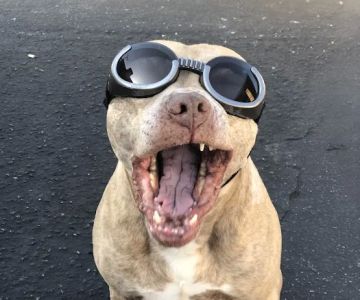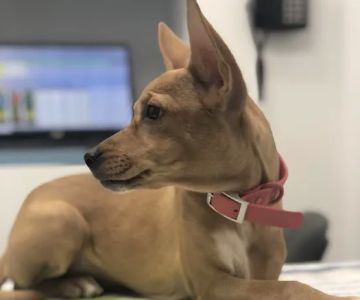How to Become a Veterinary Microbiologist
- Overview of Veterinary Microbiology
- Education Requirements for Veterinary Microbiologists
- Skills Required to Become a Veterinary Microbiologist
- Work Environment and Career Opportunities
- Job Outlook and Demand for Veterinary Microbiologists
- Career Advancement in Veterinary Microbiology
Overview of Veterinary Microbiology
Veterinary microbiology is a specialized field within veterinary science that focuses on the study of microorganisms that cause diseases in animals. These microorganisms include bacteria, viruses, fungi, and parasites. A veterinary microbiologist plays a crucial role in diagnosing, preventing, and controlling infectious diseases in animals. The knowledge and expertise provided by veterinary microbiologists are essential not only for the health of animals but also for public health, as many animal diseases can be transmitted to humans.
Becoming a veterinary microbiologist involves acquiring extensive knowledge in both veterinary medicine and microbiology. This field offers numerous opportunities in research, clinical practice, and public health, with professionals often working in academic settings, government agencies, animal research facilities, and veterinary laboratories. But how do you become a veterinary microbiologist? Let’s explore the necessary steps, from education to career advancement, to help you understand what it takes to enter this rewarding field.

1225 Warren Ave, Downers Grove, IL 60515, USA
See DetailsEducation Requirements for Veterinary Microbiologists
The path to becoming a veterinary microbiologist begins with obtaining a strong educational foundation. Here are the steps typically involved:
1. Obtain a Bachelor's Degree
The first step toward becoming a veterinary microbiologist is to earn a bachelor's degree. A degree in microbiology, biology, or animal science is ideal. During this time, students gain essential knowledge in areas like cell biology, genetics, biochemistry, and animal anatomy, all of which are crucial for understanding animal diseases.
2. Pursue a Doctor of Veterinary Medicine (DVM) or Equivalent Degree
After completing a bachelor’s degree, aspiring veterinary microbiologists must attend a veterinary school to earn a Doctor of Veterinary Medicine (DVM) degree or a comparable qualification, such as a Veterinary Medical Doctor (VMD). This advanced degree typically takes four years and involves coursework in veterinary science, disease diagnosis, and treatment methods. Hands-on clinical experience is also a significant part of the training process, providing students with the necessary skills to treat animals in real-world settings.
3. Specialize in Microbiology
Once a DVM or VMD is obtained, the next step for aspiring veterinary microbiologists is to specialize in microbiology. This can be done through additional postgraduate studies, including master's or Ph.D. programs in microbiology, veterinary pathology, or a related field. Postgraduate studies allow individuals to focus specifically on the study of pathogens affecting animals, and they typically involve laboratory work, research, and thesis writing. Some veterinarians also opt for internships or residencies in veterinary microbiology to gain practical experience in the field.
Skills Required to Become a Veterinary Microbiologist
In addition to formal education, veterinary microbiologists need to develop certain skills to excel in their field. Here are some of the key skills required:
- Analytical Skills: Veterinary microbiologists must be able to analyze and interpret laboratory results, diagnosing diseases based on microbiological data and patient symptoms.
- Laboratory Skills: A strong understanding of laboratory techniques and microbiological tools is crucial, as much of the work involves isolating and identifying pathogens in a lab setting.
- Attention to Detail: Diagnosing infectious diseases requires a meticulous approach. Veterinary microbiologists must be able to identify subtle differences in microbial cultures and patient data.
- Communication Skills: Effective communication is essential for explaining diagnoses and treatment plans to veterinary teams, animal owners, and public health authorities.
- Problem-Solving Skills: Veterinary microbiologists often face complex cases that require creative problem-solving and the ability to adapt their approach as new information emerges.
Work Environment and Career Opportunities
Veterinary microbiologists can work in a variety of environments, depending on their specialization and career interests. Here are some of the most common work settings:
1. Veterinary Clinics and Hospitals
Some veterinary microbiologists work directly with veterinarians in animal clinics and hospitals, diagnosing infections in pets, livestock, and wildlife. Their work may include analyzing lab samples, conducting tests for pathogens, and advising on treatment options for various infectious diseases.
2. Government Agencies
Veterinary microbiologists may also work for government agencies like the Centers for Disease Control and Prevention (CDC) or the U.S. Department of Agriculture (USDA). In these roles, they often monitor and control animal diseases that may affect public health, such as zoonotic diseases like rabies, tuberculosis, and avian influenza.
3. Research Institutions
Many veterinary microbiologists pursue careers in research, either in academic institutions or private research labs. These professionals conduct studies to better understand animal diseases, develop new vaccines and treatments, and improve diagnostic methods.
Job Outlook and Demand for Veterinary Microbiologists
The demand for veterinary microbiologists is expected to grow in the coming years, driven by increased awareness of zoonotic diseases, rising pet ownership, and the need for research into emerging diseases. Veterinary microbiologists are critical in addressing public health threats posed by animal diseases that can cross over to humans, such as COVID-19 and avian flu.
The Bureau of Labor Statistics (BLS) reports that the demand for veterinarians, including those specializing in microbiology, is projected to grow by 16% from 2019 to 2029, which is much faster than the average for other occupations. This growth reflects the increasing need for veterinary professionals in both clinical and research settings.
Career Advancement in Veterinary Microbiology
Veterinary microbiologists can advance their careers by pursuing specialized certifications, further education, or leadership roles. Some may choose to become board-certified specialists in veterinary microbiology, which requires additional training and examination. Others may take on leadership positions in research institutions, veterinary clinics, or governmental organizations.
Networking with other professionals in the field, attending conferences, and publishing research are also great ways to advance in the profession. Moreover, with continued advances in veterinary medicine and microbiology, new career opportunities in emerging fields, such as animal genomics and biotechnology, are opening up for veterinary microbiologists.
If you're passionate about animal health and microbiology, pursuing a career as a veterinary microbiologist can be incredibly rewarding. It offers the chance to make significant contributions to both animal and public health. For anyone interested in furthering their education and pursuing a career in this field, the right resources and programs can help guide you every step of the way. Explore opportunities in veterinary microbiology today, and consider seeking out the best educational programs and certifications to kickstart your journey.











